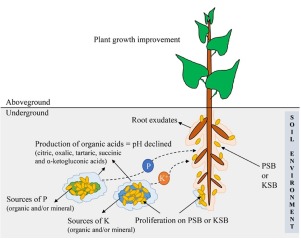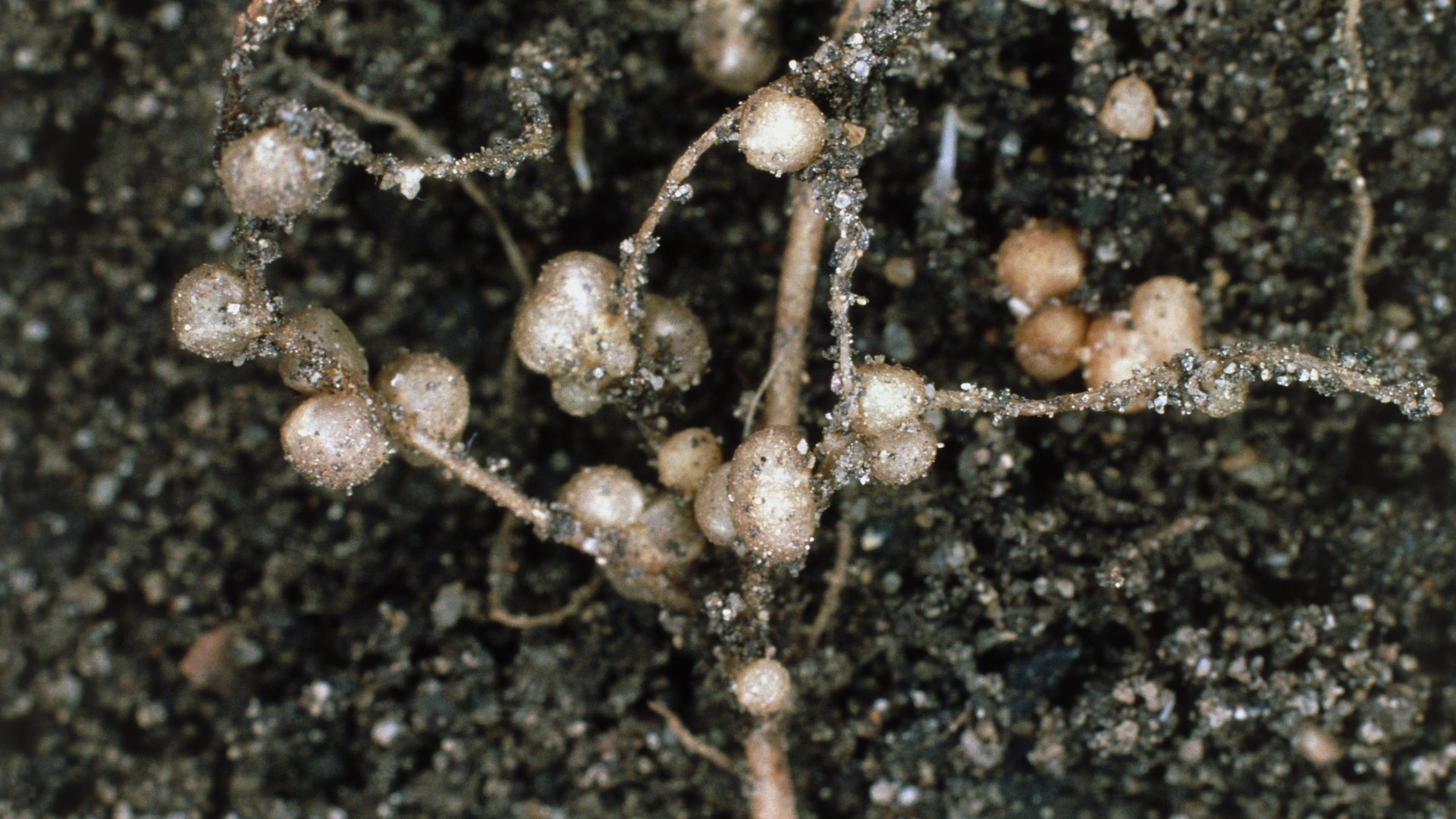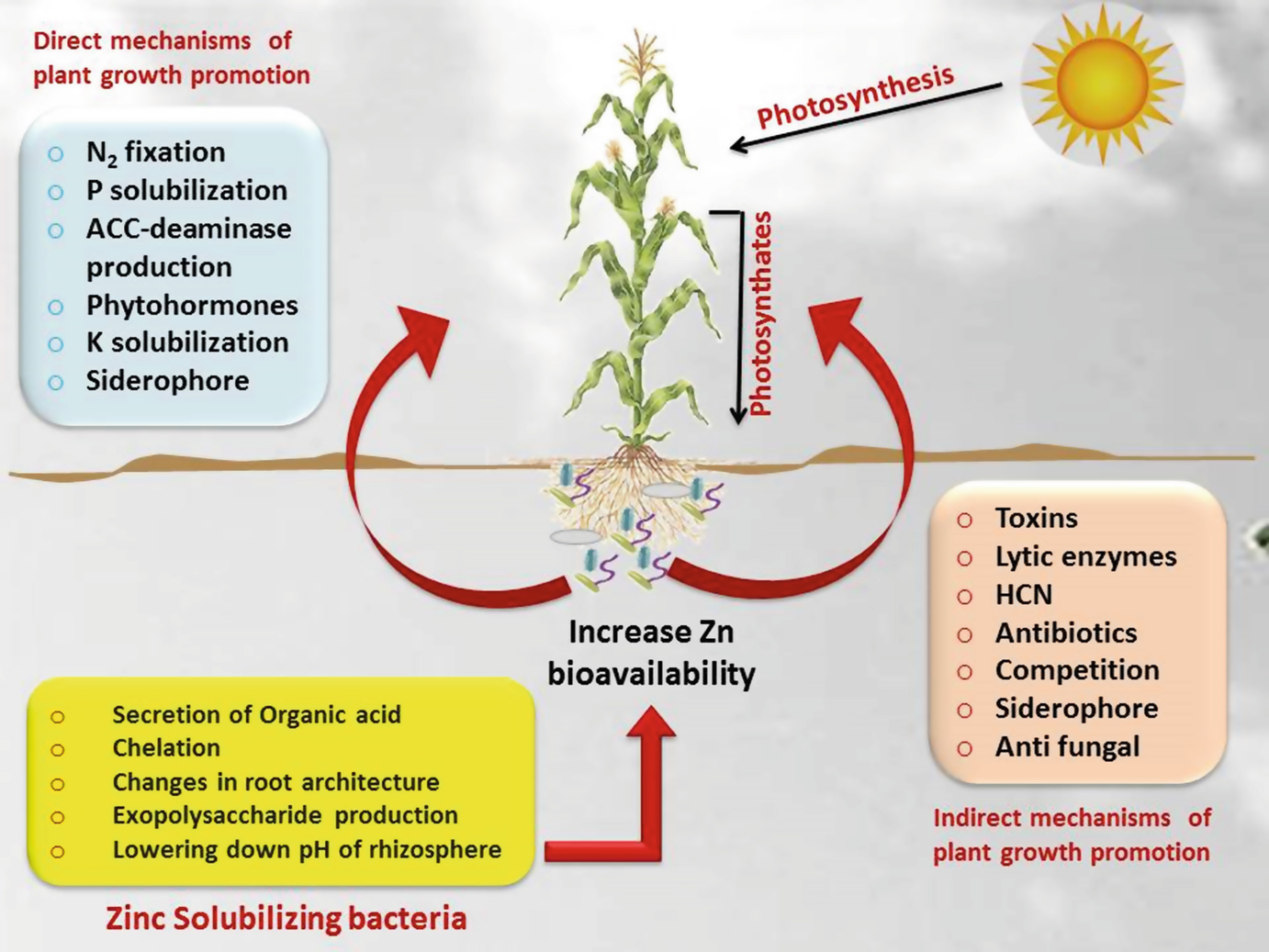- Azotobacter is an independent nitrogen fixation bacteria.
- This bacterium keeps the nitrogen of the atmosphere continuously stored in the ground.
- Use of this does not cause yellowing of leaves in cucurbit crops.
- In cucurbit crops , fruit development and growth of plants are good.
- When it is used, 20% to 25% of nitrogen is required per crop.
- These bacteria increase germination percentage of seeds.
- Helps to increase the quantity of roots and length of stem.
Importance of PSB in Cowpea
- PSB also increase the number of leaves and branching of cowpea plant.
- PSB always promote green pod yield on cowpea plant.
- Encourage faster root growth for water and nutrient uptake.
- Increase resistance towards diseases and drought tolerance due to rapid cell development in the plants.
- Reduce 25 – 30% phosphatic fertilizer requirement.
Like and share with other farmers by clicking on the button below.
ShareAdvantage of PSB in Sorghum
- Increase micronutrients availability to plant from the soil like Mn, Mg, Fe, Mo, B, Zn and Cu in addition to P2O5.
- Encourage faster root growth for water and nutrient uptake.
- PSB produce organic acids like malic, succinic, fumaric, citric, tartaric acid and acetic acid which fasten the P2O5 uptake, maturity and increase yield.
- Increase resistance towards diseases and drought tolerance due to rapid cell development in the plants.
- Reduce 25 – 30% phosphatic fertilizer requirement.
Like and share with other farmers by clicking on button below
ShareAdvantage of rhizobium culture in crops
- The effective strain used in Rhizobium culture increases the healthy nodulation and thereby nitrogen fixation (about 40 to 50 kg. per hectare).
- These bacteria take nitrogen from the air (which plants cannot use) and convert it into a form of nitrogen called ammonium (NH4+), which plants can use.
- About 10 to 15% increase of crop yield can be achieved with the use of this culture.
Like and share with other farmers by clicking on button below.
ShareZinc solubilizing bacteria in snake gourd
Zinc solubilizing bacteria naturally occurring and beneficial bacteria which produces various organic acids and makes solubilization of inorganic zinc and convert into bio-available form which helps in plant growth and multiplication.
- Increase crop yield and the quality of the produce
- Increase hormones activities
- Increase Plant growth and root growth
- Increase photosynthetic activity
- Increase soil fertility and the effect can be seen on next crop season because of bacterial multiplication and presence.
Like and share with other farmers by clicking on button below
ShareAdvantages of N fixation bacteria in okra
- Azotobacter spp. is the free-living nitrogen-fixing aerobic bacterium.
- Improve seed germination percentage.
- Increase number & length of shoot and root.
- Help to fix nitrogen from atmosphere in continuous process.
- Reduce 20% to 25 % Nitrogenous fertilizer requirements.
- Reduction in disease incidence.
Like and share with other farmers by clicking on button below
ShareAdvantages of PSB in Tomato
- Increase micronutrients availability to plant from the soil like Mn, Mg, Fe, Mo, B, Zn and Cu in addition to P2O5.
- Encourage faster root growth for water and nutrient uptake.
- PSB produce organic acids like malic, succinic, fumaric, citric, tartaric acid and acetic acid which fasten the P2O5 uptake, maturity and increase yield.
- Increase resistance towards diseases and drought tolerance due to rapid cell development in the plants.
- Reduce 25 – 30% phosphatic fertilizer requirement.
Like and share with other farmers by clicking on button below
ShareAdvantage of Phosphorus Solubilizing bacteria in bitter gourd
- Increase micronutrients availability to plant from the soil like Mn, Mg, Fe, Mo, B, Zn and Cu in addition to P2O5.
- Encourage faster root growth for water and nutrient uptake.
- PSB produce organic acids like malic, succinic, fumaric, citric, tartaric acid and acetic acid which fasten the P2O5 uptake, maturity and increase yield.
- Increase resistance towards diseases and drought tolerance due to rapid cell development in the plants.
- Reduce 25 – 30% phosphatic fertilizer requirement.
Like and share with other farmers by clicking on button below
ShareImportance of Zinc solubilizing bacteria
Zinc solubilizing bacteria naturally occurring and beneficial bacteria which produces various organic acids and makes solubilization of inorganic zinc and convert into bio-available form which helps in plant growth and multiplication.
- Useful for deficiency of zinc in Paddy (Khera disease), tomato, onion, wheat, okra.
- Increase crop yield and the quality of the produce
- Increase hormones activities
- Increase Plant growth and root growth
- Increase photosynthetic activity
- Increase soil fertility and the effect can be seen on next crop season because of bacterial multiplication and presence.
Like and share with other farmers by clicking on button below
ShareAdvantage of PSB in watermelon
- Increase micronutrients availability to plant from the soil like Mn, Mg, Fe, Mo, B, Zn and Cu in addition to P2O5.
- Encourage faster root growth for water and nutrient uptake.
- PSB produce organic acids like malic, succinic, fumaric, citric, tartaric acid and acetic acid which fasten the P2O5 uptake, maturity and increase yield.
- Increase resistance towards diseases and drought tolerance due to rapid cell development in the plants.
- Reduce 25 – 30% phosphatic fertilizer requirement.
Like and share with other farmers by clicking on button below
Share







